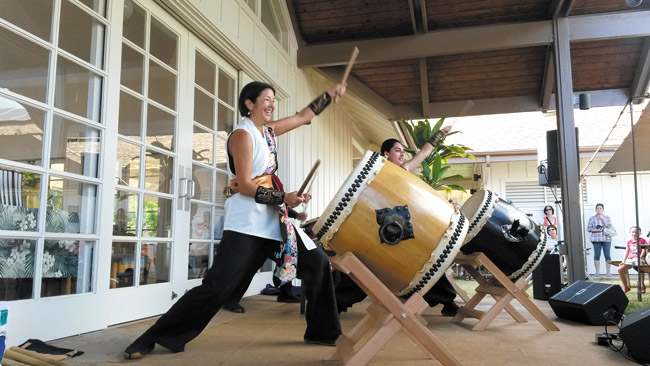Giving Her Kidney To A Total Stranger
Cynthia Chiang is quick to tell you she’s no saint. And she’s not perfect. And heavens, no, she doesn’t see herself as extraordinary.
But in my eyes, she’s all three.
Cynthia is many things: a health educator for Planned Parenthood, an interviewer for the U.S. Department of Health and Human Services, a part-timer at Kauai Kunana Dairy in Kilauea. The Omao resident also is a taiko drummer with two groups, Joyful Noise and Taiko Kauai.
And she’s an organ donor. Cynthia donated a kidney to a perfect stranger, and she doesn’t regret it one bit.
“I’m 42,” she says. “It was the right time for me. It’s in line with my values and beliefs.”
And what are her beliefs? “Wanting to help other people,” she replies. “That’s what makes me happy. Being in service to other people.”
As a living organ donor, Cynthia is a member of an elite group. And she’s even more of a rarity as a non-directed, or altruistic, donor — meaning she was willing to donate to an anonymous candidate on the transplant waiting list.
She didn’t start out wanting to donate to a stranger. She had a good friend, 80 years old, who was on dialysis and needed a kidney. His condition sparked curiosity and she did some research.
“I learned there are more than 300 people on the wait list,” she says.
And of those, about 70 had her blood type, B positive.
In fact, there are 411 people waiting for a kidney transplant in Hawaii. Cynthia and her friend turned out to be incompatible, but her newfound knowledge made her determined to carry on.
“I knew if I donated it would be a wanted kidney, a needed kidney,” she says. “I think of it as improving someone’s quality of life, not saving a life.”
Her surgeon at The Queen’s Medical Center, Jon “Kai” Yamaguchi, says Cynthia is the epitome of the perfect living donor: “She is young, she’s healthy and she’s got a great giving heart.”
Yamaguchi says not everyone who volunteers to donate is accepted and, in fact, “we turn down about two-thirds of the patients who come forward.”
That’s because there are so many factors in play, foremost among them is the prospective donor’s health. Rigorous screening is part of the evaluation. He says they try to see into the person’s future “using a crystal ball to try to predict future possible kidney disease. We want to be sure we don’t just trade one person’s kidney disease for another.”
It’s why possible donors like Cynthia are put through a thorough medical and psychosocial screening before they are accepted.
“Part of our evaluation process,” explains Yamaguchi,” is trying to look into the emotional motivation for the patients, to make sure there’s no undue pressure from family or friends.”
And non-directed donors like Cynthia, he says, are sent to a mental health practitioner for evaluation.
Cynthia passed every test. The surgery took place last September. To this day, she does not know who the recipient is, nor does she feel the need to know. A non-directed donor cannot have any expectation of meeting the person they helped, she says, “It must be an unconditional gift.”
But she knows it was worth it: “I’ve been told he’s doing well.”
Cynthia was back banging her taiko drum within two months after the surgery. She’s happy, healthy and fired up with a new mission: getting more people to donate.
“I’m all about recruiting. One of my values that I hold dear is sharing the wealth and sharing good health. I don’t take care of my body all the time, but I was blessed to have high-functioning kidneys. You only need one.
“Any opportunity to help another person is such a blessing. I feel stronger because of it.”
She’ll be sharing her experiences and philosophy during a free Speaking of Health lecture, “Kidney Transplants: How to Save a Life,” Wednesday, April 29 at Oahu’s Queen’s Medical Center.
jmoonjones@yahoo.com
Twitter: @JadeMoon1




